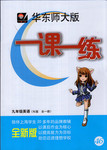
| 61£®A£®fight | B£®watch | C£®stand | D£®wander |
| 62£®A£®friendship | B£®challenge | C£®food | D£®power |
| 63£®A£®treated | B£®lifted | C£®introduced | D£®agreed |
| 64£®A£®climbed | B£®returned | C£®referred | D£®pointed |
| 65£®A£®healthy | B£®careful | C£®generous | D£®friendly |
| 66£®A£®gradually | B£®fluently | C£®frequently | D£®particularly |
| 67£®A£®weakness | B£®kindness | C£®fitness | D£®happiness |
| 68£®A£®dance | B£®eat | C£®sing | D£®jump |
| 69£®A£®hunters | B£®friends | C£®relative | D£®thieves |
| 70£®A£®noise | B£®signs | C£®dinner | D£®marks |
| 71£®A£®cheated | B£®caught | C£®killed | D£®separated |
| 72£®A£®took up | B£®insisted on | C£®gave up | D£®put off |
| 73£®A£®smart | B£®nervous | C£®upset | D£®lucky |
| 74£®A£®Otherwise | B£®Therefore | C£®However | D£®Thus |
| 75£®A£®wait | B£®work | C£®help | D£®explore |
| 76£®A£®feed | B£®beat | C£®prevent | D£®appoint |
| 77£®A£®dragged | B£®pushed | C£®drove | D£®guided |
| 78£®A£®progress | B£®ability | C£®reward | D£®plan |
| 79£®A£®song | B£®mistake | C£®dream | D£®duty |
| 80£®A£®advice | B£®joke | C£®story | D£®speech£® |
·ÖÎö ÕâÊÇһƪԢÑÔ¹ÊÊ£¬Í¨¹ýÓÞ´ÀµÄ¿×Ó²»Ìý²òÀǵĽ¨ÒéµÄ¹ÊÊÂÀ´·í´ÌÄÇЩ×ÔÒÔΪÊǵÄÈË£®
½â´ð 61-65 DCABA 66-70 DDCDA 71-75 BBCCA 76-80 BACBA
61£®D¿¼²é¶¯´Ê´ÊÒå±æÎö´ÓÇ°£¬ÓÐÒ»Ö»ÀÏÊÝ¿£¬°×ÌìΪÈ˸ɻÍíÉÏ¿ÉÒÔ×ÔÓɵص½´¦Ïй䣮¹ÊӦѡD£®
62£®C¿¼²éÃû´Ê´ÊÒå±æÎöÒ»ÌìÍíÉÏ£¬Ëû½á½»Á˲òÀǺÍËûÃǶ¼³öȥѰÕÒʳÎ´Ë´¦Ó¦Ñ¡C£®
63£®A¸ù¾ÝÉÏÏÂÎÄËûÃÇ·¢ÏÖÒ»¸öÂúÊǻƹϵĻ¨Ô°£¬¿î´ýËûÃÇ×Ô¼ºÒ»¶ÙÃÀζµÄÍí·¹
64£®B¿¼²é¶¯´Ê´ÊÒå±æÎö ´ÓÄÇÖ®ºó£¬ËûÃÇÿÍí¶¼À´µ½»¨Ô°³Ô»Æ¹Ï£®
65£®A¿¼²éÐÎÈÝ´Ê´ÊÒå±æÎö£®ËùÒÔ½¥½¥µØ¿×Ó¾ÍÅÖÁË£¬½¡¿µÁË£¬¹ÊӦѡA£®
66£®D¿¼²é¸±´Ê´ÊÒå±æÎö£¬Ò»ÌìÍíÉÏ£¬Ò»¶ÙÌرðÃÀζµÄ·¹²Ëºó£¬Â¿ºÜ¿ªÐÄ
67£®D¸ù¾ÝÏÂÎÄSo happy was he that ¿ÉÖª£¬ÕâÀïӦѡD£®Â¿ºÜ¿ªÐÄ
68£®C¿¼²é¶¯´Ê´ÊÒå±æÎö¿ºÜ¿ªÐÄ£¬ËüÏ볪¸è£®¹ÊӦѡC£®
69£®D¸ù¾ÝÉÏÏÂÎIJòÀǾ¯¸æ¿×Ó£¬ËûÃÇÊÇС͵£¬ËùÒÔ³ª¸è£¬·¢³öÉùÒô²»ÊÇÒ»¸öºÃÖ÷Ò⣬ÕâÀïӦѡD£¬
70£®A¿¼²é¶ÌÓmake noiseÊǹ̶¨¶ÌÓÒâ˼ÊÇ"·¢³öÉùÒô"£®
71£®Bϸ½ÚÀí½âÌâÓɺóÒ»¾ä¿ÉÖª£¬Èç¹ûËûÃDZ»Å©Ãñ´þµ½£¬ËûÃǾͻᱻ´òËÀ£¬ÕâÀïӦѡB£¬
72£®B¿¼²é¶ÌÓïinsist on ¼á³Ö£¬Èç¹ûËûÃDZ»Å©Ãñ´þµ½£¬ËûÃǾͻᱻ´òËÀ£¬µ«²òÀǼá³Ö³ª¸è£¬¹ÊӦѡB£®
73£®C¿¼²éÐÎÈÝ´Ê´ÊÒå±æÎö²òÀÇ˵¿×ÓµÄÉùÒô²»ºÃÌý£¬Â¿×Ó²»¿ªÐÄ£¬ÈÏΪËûÊǼµ¶Ê×Ô¼º
74£®C¿¼²é¸±´Ê´ÊÒå±æÎö È»¶ø£¬Â¿×Ó¿ªÊ¼³ª¸è£¬²òÀÇÔÚ»¨Ô°ÍâÃæµÈ£¬¹ÊÑ¡C£®
75£®A¿¼²é¶¯´Ê´ÊÒå±æÎö ¿×Ó¿ªÊ¼³ª¸è£¬²òÀÇÔÚ»¨Ô°ÍâÃæµÈ
76£®B¿¼²é¶¯´Ê´ÊÒå±æÎö µ±Å©ÃñÌýµ½Â¿×ÓµÄÉùÒô£¬ËûÃdzå³öÀ´´òËû£®
77£®A¿¼²é¶¯´Ê´ÊÒå±æÎö£®Â¿×Óµ¹ÏÂÁË£¬Å©ÃñÃÇ°ÑÒ»¿é³ÁÖصÄʯͷ°óÔÚËûµÄ²±×ÓÉÏ£¬ËûÍÏ×ųÁÖصÄÉíÌåÀ´µ½Â¿×ÓÉí±ß£®¹ÊӦѡA£®
78£®Cϸ½ÚÀí½âÌâ ²òÀÇ×£ºØËûµÃµ½µÄ½±Àø£®
79£®B¿¼²éÃû´Ê´ÊÒå±æÎö ¿×ÓÒâʶµ½×Ô¼ºµÄ´íÎó£¬ÒòΪûÓÐÌý²òÀǵĽ¨Òé¶øÏòËûµÀǸ£®¹ÊӦѡB£®
80£®A¿¼²éÃû´Ê´ÊÒå±æÎö ½áºÏÉÏÎÄ£¬Â¿×ÓÒâʶµ½×Ô¼ºµÄ´íÎó£¬ÒòΪûÓÐÌý²òÀǵĽ¨Òé¶øÏòËûµÀǸ£®¹ÊÑ¡A£®
µãÆÀ ÍêÐÍÌî¿Õ£¬½âÌâʱҪץסÎÄÕµÄÂöÂ磬һ¶¨Òª¶Á¶®È«ÎÄ£¬ÅªÇåÎÄÕÂÒª±í´ïµÄ˼Ï룬עÒâÇ°ºó¶ÎÂäÖ®¼äµÄ¹Øϵ£®´ðÌâÖУ¬Ò»¶¨ÒªÈÏÕæ·ÖÎö£¬×¢ÒâÑ¡ÏîÓëÉÏÏÂÎĵĹØϵ£¬ÓëÇ°ºóµ¥´ÊµÄ¹Øϵ£®¶ÔÓÚһʱûÓÐÌ«´óµÄ°ÑÎÕµÄÌâ¿ÉÒԷŵ½×îºóÔÙÀ´Íê³É£¬ÒòΪÓÐʱ´ð°¸¿ÉÒÔ´ÓÏÂÎÄÄÚÈÝÌåÏÖ³öÀ´£®´ðÍêºóÔÙͨ¶ÁһƪÎÄÕ£¬¿´¿´ËùÑ¡Ñ¡ÏîÄܲ»ÄÜÊÇÓï¾äͨ˳£¬ÓïÒâÁ¬¹á£®


 »ª¶«Ê¦´ó°æÒ»¿ÎÒ»Á·ÏµÁдð°¸
»ª¶«Ê¦´ó°æÒ»¿ÎÒ»Á·ÏµÁдð°¸
| Ä꼶 | ¸ßÖÐ¿Î³Ì | Ä꼶 | ³õÖÐ¿Î³Ì |
| ¸ßÒ» | ¸ßÒ»Ãâ·Ñ¿Î³ÌÍƼö£¡ | ³õÒ» | ³õÒ»Ãâ·Ñ¿Î³ÌÍƼö£¡ |
| ¸ß¶þ | ¸ß¶þÃâ·Ñ¿Î³ÌÍƼö£¡ | ³õ¶þ | ³õ¶þÃâ·Ñ¿Î³ÌÍƼö£¡ |
| ¸ßÈý | ¸ßÈýÃâ·Ñ¿Î³ÌÍƼö£¡ | ³õÈý | ³õÈýÃâ·Ñ¿Î³ÌÍƼö£¡ |
¿ÆÄ¿£º¸ßÖÐÓ¢Óï À´Ô´£º ÌâÐÍ£ºÔĶÁÀí½â
²é¿´´ð°¸ºÍ½âÎö>>
¿ÆÄ¿£º¸ßÖÐÓ¢Óï À´Ô´£º ÌâÐÍ£ºÔĶÁÀí½â
²é¿´´ð°¸ºÍ½âÎö>>
¿ÆÄ¿£º¸ßÖÐÓ¢Óï À´Ô´£º ÌâÐÍ£ºÌî¿ÕÌâ
²é¿´´ð°¸ºÍ½âÎö>>
¿ÆÄ¿£º¸ßÖÐÓ¢Óï À´Ô´£º ÌâÐÍ£ºÔĶÁÀí½â
²é¿´´ð°¸ºÍ½âÎö>>
¿ÆÄ¿£º¸ßÖÐÓ¢Óï À´Ô´£º ÌâÐÍ£ºÔĶÁÀí½â
²é¿´´ð°¸ºÍ½âÎö>>
¿ÆÄ¿£º¸ßÖÐÓ¢Óï À´Ô´£º ÌâÐÍ£ºÑ¡ÔñÌâ
| A£® | has rained£¬let up | B£® | has been raining£¬let up | ||
| C£® | has rained£¬let out | D£® | has been raining£¬let out |
²é¿´´ð°¸ºÍ½âÎö>>
¿ÆÄ¿£º¸ßÖÐÓ¢Óï À´Ô´£º ÌâÐÍ£ºÑ¡ÔñÌâ
| A£® | submitting | B£® | substituting | C£® | appointing | D£® | registering |
²é¿´´ð°¸ºÍ½âÎö>>
¿ÆÄ¿£º¸ßÖÐÓ¢Óï À´Ô´£º ÌâÐÍ£ºÔĶÁÀí½â
²é¿´´ð°¸ºÍ½âÎö>>
°Ù¶ÈÖÂÐÅ - Á·Ï°²áÁбí - ÊÔÌâÁбí
ºþ±±Ê¡»¥ÁªÍøÎ¥·¨ºÍ²»Á¼ÐÅÏ¢¾Ù±¨Æ½Ì¨ | ÍøÉÏÓк¦ÐÅÏ¢¾Ù±¨×¨Çø | µçÐÅթƾٱ¨×¨Çø | ÉæÀúÊ·ÐéÎÞÖ÷ÒåÓк¦ÐÅÏ¢¾Ù±¨×¨Çø | ÉæÆóÇÖȨ¾Ù±¨×¨Çø
Î¥·¨ºÍ²»Á¼ÐÅÏ¢¾Ù±¨µç»°£º027-86699610 ¾Ù±¨ÓÊÏ䣺58377363@163.com